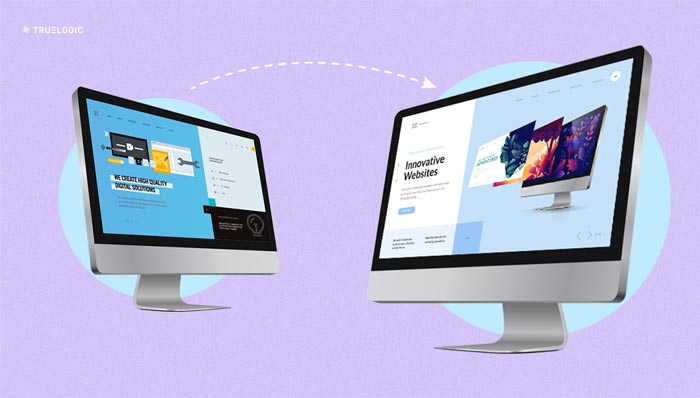Enhancing EEAT SEO: building Trust and Authority Online

If you have searched for something online, clicked on a page with questionable information, and immediately thought it looked suspicious, those kinds of shady websites are unfortunately common across the Internet.
As a countermeasure, Google constantly updates its search algorithms to provide users with the best experience and content possible. One framework used by Google’s human reviewers to determine content quality is E-E-A-T, which stands for Expertise, Experience, Authoritativeness, and Trustworthiness. These four pillars quietly shape how Google ranks your site, especially in industries where accuracy and credibility matter most.
Learn more about E-E-A-T SEO and why it’s the key to building trust and authority in the digital space.
What is E-E-A-T?
E-E-A-T (Expertise, Experience, Authoritativeness, and Trustworthiness) is derived from the original E-A-T concept. Google first introduced E-A-T (Expertise, Authoritativeness, and Trustworthiness) to assess a website’s content quality. Google expanded the framework to E-E-A-T by adding “Experience” as a criterion.
Why? Google did this to help Quality Raters evaluate the quality of search results better because it recognizes the unique value of first-hand experience. For example, product reviews are more trustworthy when the reviewer has used the product themselves, instead of those generated by AI or bots.
E-E-A-T is not a ranking factor per se. Still, it is a set of guidelines Google Quality Raters use to determine whether a piece of content accurately answers users’ search queries. E-E-A-T is one of the most critical trust signals in digital marketing that business leaders and marketers shouldn’t ignore.
While E-E-A-T is essential for all types of content, it’s particularly crucial for sensitive topics that impact a person’s life, health, finances, safety, or well-being. Due to their nature, these so-called “your money or your life” (YMYL) topics must be held to a higher standard of integrity and credibility.
Let’s define each letter in E-E-A-T.
Experience
Expertise refers to the author’s knowledge, skills, and credentials in a specific topic. The level of expertise required depends on the page’s topic and purpose. This is especially true for YMYL categories where bad advice can have real-world consequences.
Google looks for expertise through:
For example, a health article reviewed by a medical doctor is more believable and credible than content written by someone with no qualifications in that area.
Authoritativeness
The “A” in E-E-A-T means Authoritativeness, which refers to your reputation as a reliable source. It’s easy for someone to say they’re an expert, but whether or not other sites link to their content as a trustworthy reference can make all the difference. Google checks if your brand or content creator is recognized in the industry. This means being mentioned, cited, or linked to by other trusted sources—part of what we call building online authority.
Google Quality Raters assess authoritativeness by considering the following factors:
For example, a financial advice column piece penned by a well-regarded economist or investor can be considered authoritative. WebMD also publishes scientifically and medically accurate content.
Trustworthiness
Trustworthiness refers to the accuracy, transparency, and honesty of the content and its author. Can users trust your content, site security, and brand transparency? This criterion protects users from potential harm and gives them peace of mind that:
Why Is E-E-A-T Important for SEO?
For enterprise-level businesses, E-E-A-T SEO is more than a ranking strategy; it’s all about trust. Here’s why it matters:
1. YMYL = Higher Stakes
If your business deals in finance, health, law, or other high-impact services, you fall into the YMYL (Your Money or Your Life) category. Google holds YMYL sites to a higher standard. If you don’t display strong trust signals in digital marketing, you risk getting buried in search results.
2. Trust is a Conversion Driver
Trust doesn’t just affect rankings—it influences revenue. B2B buyers, stakeholders, and customers are more likely to engage and convert when content appears credible, expert-led, and authentic.
3. Protection From Algorithm Shifts
Google updates are unpredictable. However, brands that consistently align with E-E-A-T tend to survive—and thrive—after algorithm changes because they already follow quality-first practices.
4. Increases Social Engagement
High-quality, trustworthy content is more likely to be shared via social media. This can indirectly benefit your search visibility.
5. Reduced Bounce Rates
When users don’t think your website is sketchy, they’re less likely to leave the page. A low bounce rates indicates to Google that your content satisfied users’ search queries.
6. Overall Positive Digital Presence
E-E-A-T principles enhance your brand’s overall digital health. Strong brand trust on your site bleeds into your ad campaigns, email click-through rates, and even your LinkedIn thought leadership performance.
Ways to Improve Your Site’s E-E-A-T for SEO
If you’re ready to incorporate E-E-A-T into your content strategy, here are actionable ways to improve your E-E-A-T foundation:
1. Create Helpful Content
Google isn’t looking for fluff; it wants substance. Create helpful content that addresses common search queries. Think FAQs, how-to guides, comparison pages, and actionable blogs that resolve pain points. When users find your content relevant to their questions, they consider you a reliable source of information. Make it digestible, data-backed, and written by someone who knows what they’re talking about—not a generic AI drone or keyword-stuffer. This kind of content builds both credibility and ranking.
2. Credit Your Content Creators
Gone are the days when you could hide behind “admin” as the author. Now, Google wants to know who’s writing your content—and why they’re worth listening to. Add bios, certifications, and relevant experience for every content creator, especially in thought leadership and blog posts. Expertise needs to be visible, not implied. You wouldn’t take financial advice from an anonymous blog, so don’t expect your readers (or search engines) to either.
3. Get Quality Backlinks
Strengthen your site’s authority with mentions from reputable publications, partners, and industry blogs. These trust signals prove that your content is reliable. Focus on building real relationships: contribute guest posts, collaborate with industry influencers, and get cited in roundups or interviews. You want other experts in your field to vouch for you. That’s how you build both authority and visibility in search.
4. Publish Case Studies and Client Testimonials
Want to flex your industry muscle? Demonstrate real-world experience by sharing in-depth case studies, behind-the-scenes processes, and client success stories. This shows not only what you know but what you’ve already done. Testimonials with real names, titles, and (when possible) photos also go a long way in showing trustworthiness. Better yet—embed video testimonials if you can. This kind of content proves your expertise and value.
5. Boost On-Site Trust Signals
Brands that prioritize voice search optimization significantly enhance customer experience by instantly delivering accurate and contextually relevant information. Voice search content meets consumers at their moment of inquiry, making interactions feel effortless and natural. By adopting conversational search strategies, your business meets customer expectations and builds trust and retention.
Ultimately, writing and publishing quality content aim to add value to people’s lives. Google knows it. Your customers feel it. And your competitors are chasing it. Strengthening your E-E-A-T SEO is all about establishing a digital presence that’s hard to ignore, easy to trust, and impossible to replicate.










